Most guitar players don’t clean their strings. That’s unfortunate but understandable. Most of them just don’t know they should, and even if they do, they don’t necessarily know how to clean their guitar strings. The fact that you’re here, reading this post today, is the first step to saving tons of money on guitar strings and a lot of time on changing them.
In today’s post, we’ll learn why you should clean your guitar strings, different ways of cleaning them, how often you should do it, and what you can use to simplify this process.
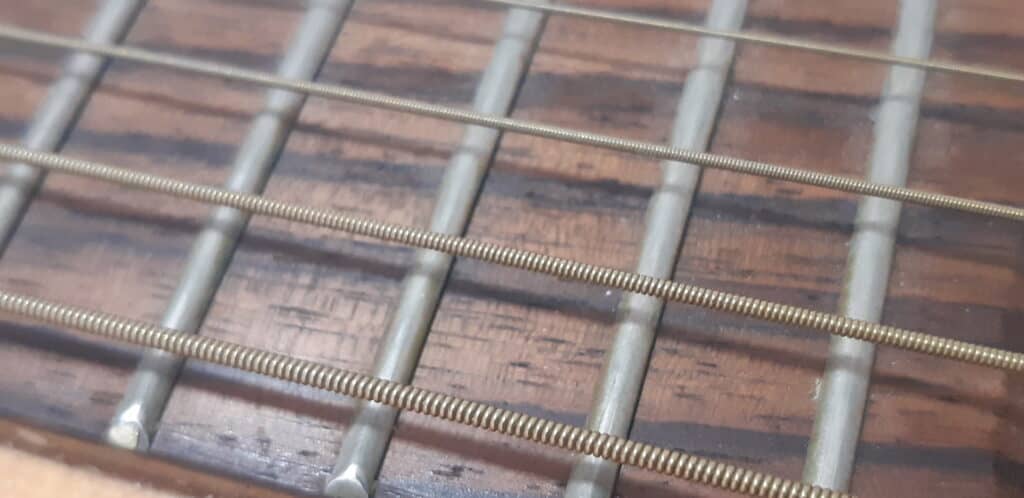
Table of Contents
Why Should You Clean Your Guitar Strings?
Cleaning your guitar strings should be part of your day-to-day guitar maintenance. But beyond that, there are two main reasons to clean your guitar strings.
One is to make them last longer, and the other is so they will sound as good as they were when you first used them.
To Make The Strings Last Longer
When you play, the sweat and dirt from your hands get on the strings and inside the winding of your strings. This grime speeds up the build-up of rust in your strings. This rust makes your strings stiffer and less flexible, causing them to break a lot faster (and be a lot harder to bend).
To Make Them Sound Better
The same sweat and dirt also prevent the string from moving freely. This causes the familiar sound of a dead string, like there’s a low-pass filter on the guitar.
To Help You Play Faster
Yeah, that’s right! String lubricators help your pick glide faster, and your fingers move faster on the fretboard while minimizing the fret noise you usually have.
How to Clean Guitar Strings: Step by Step
Cleaning your strings is a fairly simple task that shouldn’t take more than 5 minutes per week. It will require a few things, though.
What You Need
- A microfiber cloth – doesn’t matter which, just make sure it doesn’t leave residues that might get stuck between the strings winding and limiting their movement. I used to use a cloth by Ibanez but switched to this one about a year ago (it’s also featured in my favorite guitar gadgets article). You can even use the cloth that came with any sunglasses you bought.
- Strings lubricant – There are a few of these available. My favorite is this one, by D’Addario, but any one of these by Dunlop or GHS will do the job just as well. You don’t have to use them, but the money they save on new guitar strings surpasses their cost by a mile.
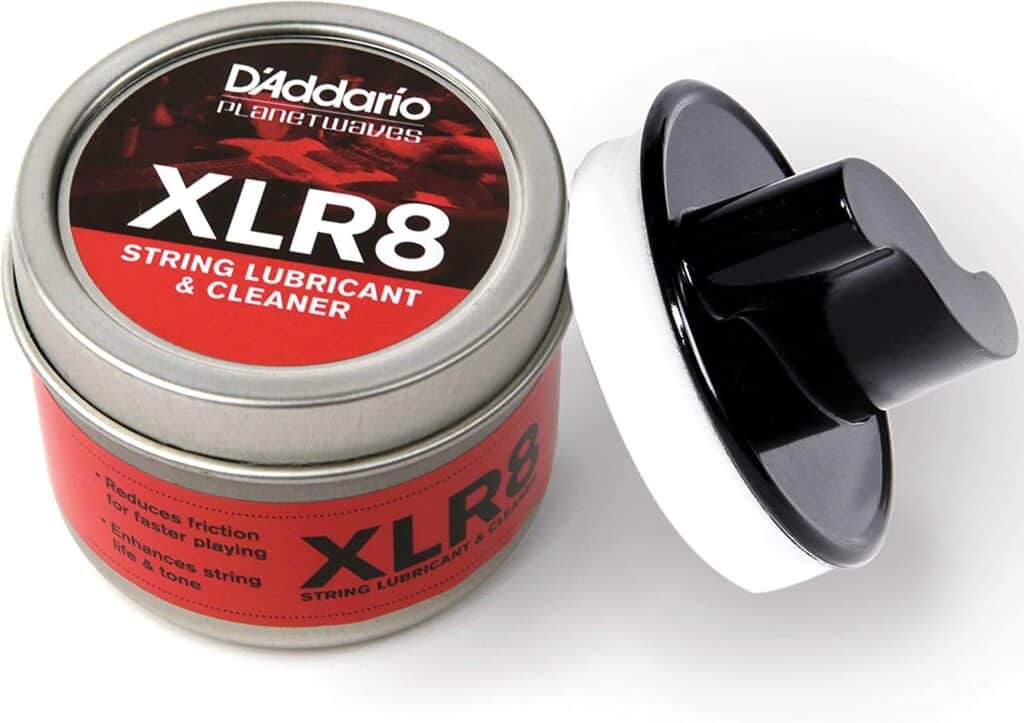
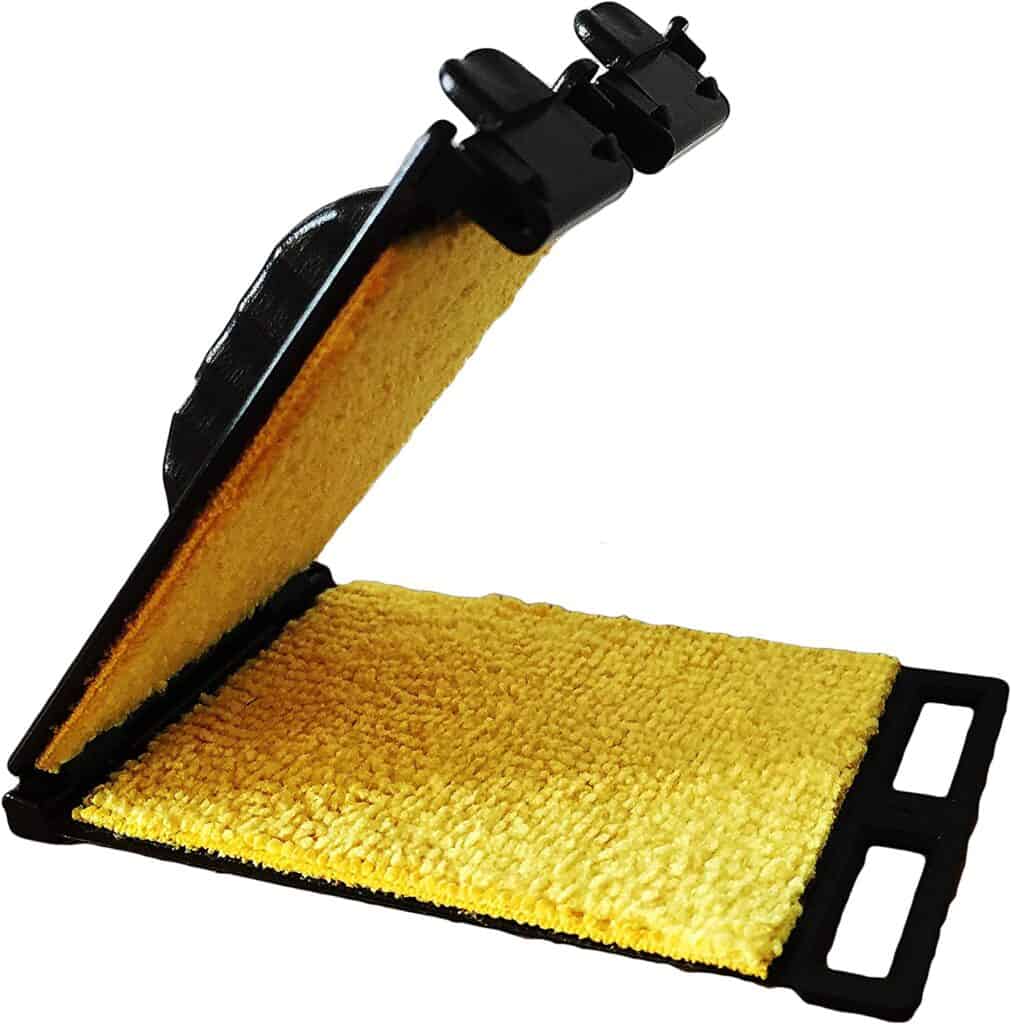
There are some tutorials recommending using household cleaning products such as dish soap, alcohol, and even Windex to clean the strings. Even though they might do a decent job in making them look cleaner, none of them will lubricant the strings, and most importantly: they might harm the fretboard.
Cleaning The Strings
We have everything we need (who doesn’t have at least one clean cloth?), it’s time to get started.
Step 1: Wipe the Strings With the Cloth
If you got the string clear that clamps on the strings, just close it and run over them a few times. If you use a regular cloth, place it beneath the strings and grab with it one string from above. Hold it tight and run it up and down a few times. Don’t rush it.
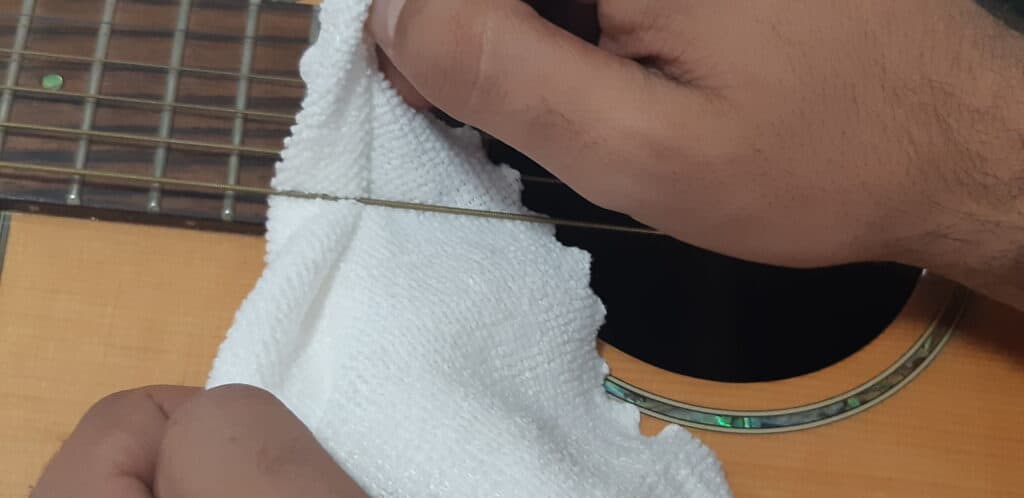
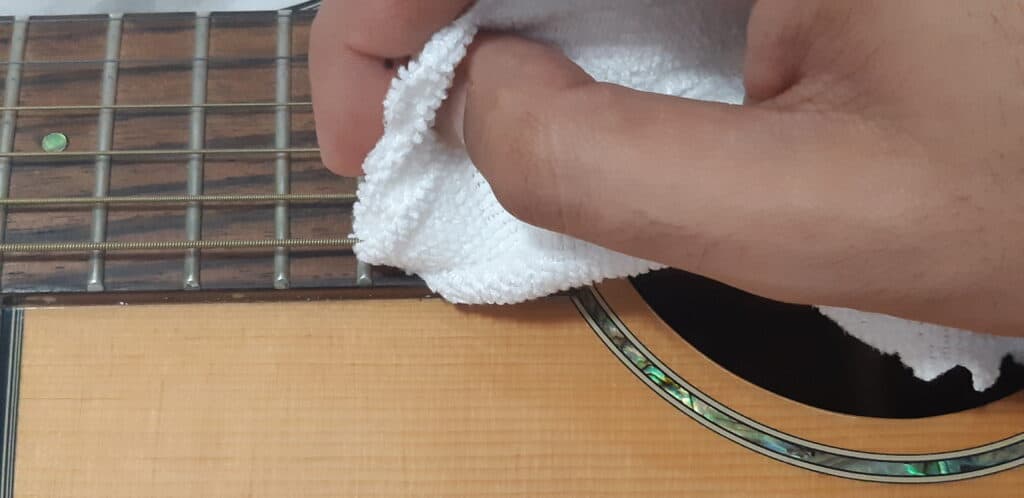
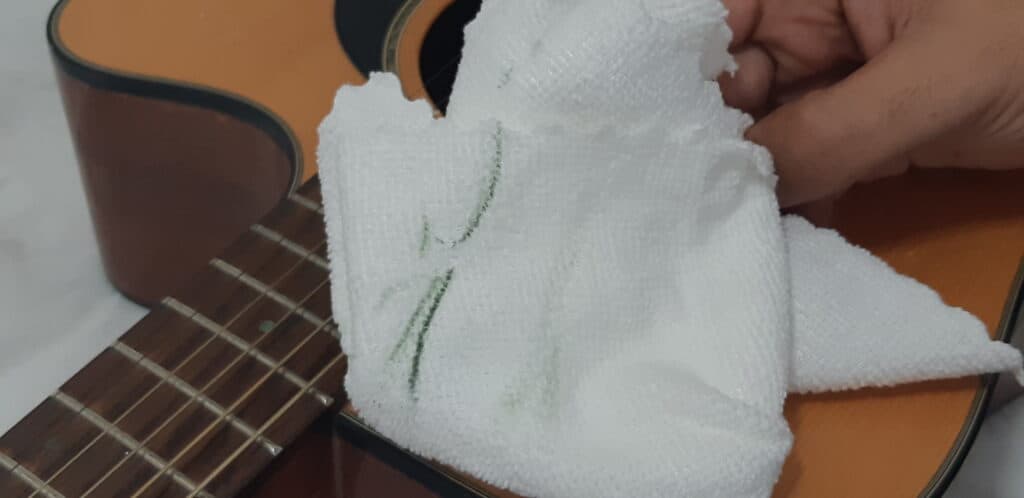
Step 2: Apply the String Lubricant
This is not mandatory, but it is important. Mainly because string lubricants are meant to improve the flexibility of the strings, as well as help you play faster by helping your fingers and pick glide more easily across the strings.
Apply the lubricant with the applier it came with, if it didn’t come with an applier, just put some on a cloth and run it across all the strings until they are covered with it.
Ongoing Tips for Cleaner Guitar Strings
Beyond cleaning your strings every time you play (or once a week if we’re honest), there are some great tips that will help you keep the cleaner between cleanups.
Wash Your Hands Before You Play
It goes without saying – the less dirt you have on your hands, the less will go through to your strings.
Stretch Your Strings
Stretching your strings releases some of the grime that is stuck there, preventing the creation of rust. It also helps the strings stay flexible by preventing the grime from settling and hardening.
Alternative Ways Of Cleaning Guitar Strings
Slapping Guitar Strings To Make Them Cleaner
Believe it or not, this method actually works pretty well. Just pull the string somewhere around the 12th fret and release. The string will stretch, allowing the dirt to move, and then the hit from the frets will release it.
It doesn’t clean everything, but it takes care of some of the dirt, that’s why I don’t rely solely on it, but use it between cleanups.
Boiling Strings in Hot Water
This is another method that works. It works a lot better for bass strings than guitar strings because guitar strings are a lot thinner. When you remove guitar strings from a guitar they become a lot more fragile and tend to break a lot faster.
Cleaning Methods to Avoid
Should You Use Alcohol for Cleaning Guitar Strings?
I won’t recommend anyone to use alcohol to clean their guitar strings for a couple of reasons. Even though rubbing alcohol makes the string super shiny, it often causes them to sound very harsh. Drops of alcohol can also fall on the body and fretboard and harm the finish. And if these two weren’t enough, alcohol also makes the strings stiffer, so they break faster.
Cleaning Guitar Strings With Aluminum Foil
This is yet another not so recommended method. It’s not as dangerous as using alcohol, but will most likely make your strings sound even worse. Residues from the aluminum foil will get stuck in the windings of the strings and limit their movement. The same thing that made this method so widespread, is the exact reason why it’s so ineffective. These residues that mute the strings are the ones that make them shine as if they were new.
Finishing Thoughts
Cleaning your guitar string is important, but we saw that it’s also easy to do. Keep your tone as fresh as it can be for as long as possible. Got other tips for cleaning guitar strings? Post them in the comments below.
It seems that you’re cleaning the strings and then right after you’re gumming them up again with lubricant. Do you then clean the lubricant off again after playing?
After playing I just run that “clips” a few times. The lubricant was already absorbed at this point.